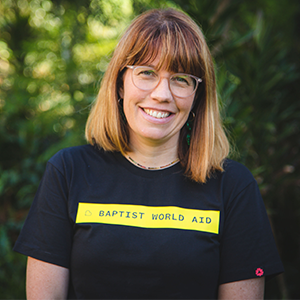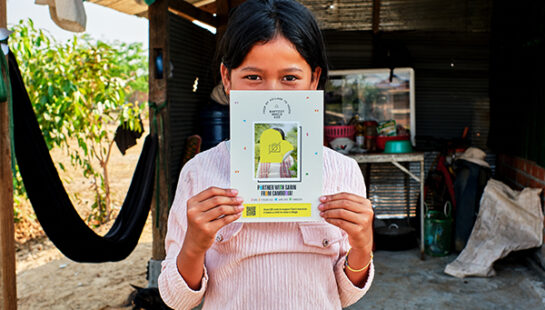When Jesus said love your enemies, he was living in the middle of a very polarised culture. There wasn’t peace between the Roman Empire and Israel. There was resentment and anger, as well as oppression and exploitation. There were sides to be taken. And the people of Israel were hoping Jesus would take theirs.
Many in Israel had seen, in their study of the Law and the Prophets, the coming of a conquering Messiah. One who would liberate them once and for all from the cycle of oppressive domination—of which the Romans were merely the latest in a long line of oppressors.
In recent months, as heartbreaking violence escalates in Israel and Palestine, we find ourselves asking, what does it really mean that Jesus is the Prince of Peace (Isaiah 9:6)? When he could have conquered every oppressive force decisively once and for all, why did Jesus lead with peace and service?
In Matthew, Jesus makes a direct challenge to the hope for a conquering Messiah. And he explicitly redirects a framework of violent retribution that many among his audience might have found hard to take.
‘You’ve heard it said . . . but I tell you’.
Loving Our Neighbour
This is a well-known moment. The eye for the eye (Exodus 21:23-25) is replaced with turning the other cheek. The love your neighbour, hate your enemy is replaced with love your enemies and pray for those who persecute you (Matthew 5:38-44). Perhaps some in the audience might have been ready to cheer the first statement but were quickly deflated by the second.
Jesus drains all the violence out of the Old Testament’s prescription for retributive justice. There will be no retribution, only restoration—the other cheek, and sacrificial love. Give them your coat, in fact double down and give them more than they ask for and go twice the distance.
Jesus drains all the violence out of the Old Testament’s prescription for retributive justice. There will be no retribution, only restoration—the other cheek, and sacrificial love.
In the conflicts of our day, people often demand we draw lines and take sides. We live in a divided and polarised time but so did Jesus. And his challenge to dismantle those divisions with a commitment to peace, and to servant-hearted love, remains as potent today as it was during the Sermon on the Mount.
As a humanitarian organisation, Baptist World Aid is not only committed to peace and service because it sounds like Jesus but there are four guiding principles, laid out by the United Nations, that we, and our humanitarian peers, are compelled to abide by:
- Humanity: human suffering must be addressed wherever it is found. The purpose of humanitarian action is to protect life and health and ensure respect for human beings.
- Impartiality: humanitarian action must be carried out based on need alone, making no distinctions based on nationality, race, gender, religious belief, class or political opinions.
- Neutrality: humanitarian actors must not take sides in hostilities or engage in controversies of a political, racial, religious, or ideological nature.
- Independence: humanitarian action must be autonomous from the political, economic, military, or other objectives that any actor may hold in relation to areas where humanitarian action is being implemented.
Made In The Image Of God
During age long divisions and conflicts, the principles of impartiality and neutrality are particularly important when seeking to serve the most vulnerable—especially innocent children who had no say in where they were born, to whom, or at what time in history. And ultimately, this means we trade in any right to take a side.
In the conversations around conflict in the Middle East, there’s a lot of passion. Much of it motivated by love and deep concern for human life. But as Christians, we need to be firstly formed by the Prince of Peace. And as such this means affirming the dignity of every human—because every human has been made in the image of God.
. . . this means affirming the dignity of every human—because every human has been made in the image of God.
We are, all of us, made for creativity and for connection. But we’re all living in a broken world, longing—groaning—for the restoration of all things. And this surely means restoration of all, from every side in any conflict. All are invited into liberation to live in the fullness of life God intends.
Jesus did, of course, ultimately take the side we all needed him to take. He was, and is, the Messiah and through the gift of his life he became the salvation of the whole world. To this day, even in our polarised and divided world, he’s the one who is reconciling all things. And he calls us to join him in the practice of restorative justice, which is a far cry from an eye for an eye.




 Sophia Russell,
Sophia Russell,